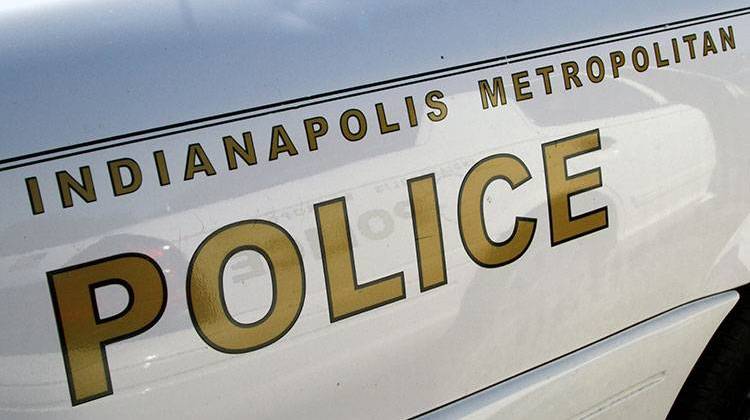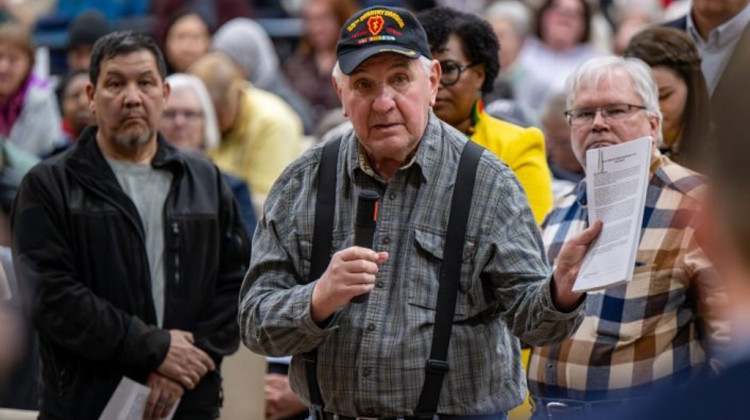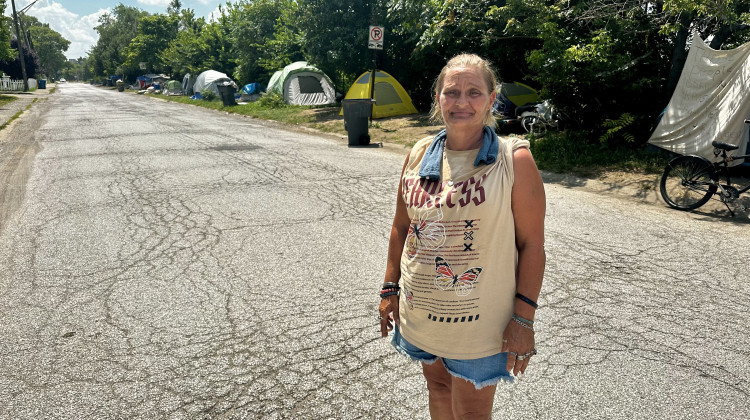A man who was having a mental health crisis died last month after an Indianapolis police officer deployed his electronic control device, or taser.
Herman Whitfield’s parents called for an ambulance in the early morning of April 25 but five Indianapolis Metropolitan Police Department officers responded. According to police, Whitfield “moved quickly towards an officer,” who used his taser. Whitfield was unresponsive before being transferred to a hospital where he was pronounced dead.
Many community members say the incident should have been handled differently.
WFYI’s Criminal Justice Reporter Katrina Pross spoke with Josh Riddick, an organizer with Faith in Indiana’s Black Church Coalition initiative, about what community leaders say should happen next.
Katrina Pross, WFYI: How did Faith in Indiana hear about this incident, that a man named Herman Whitfield was killed after an IMPD officer deployed their taser?
Josh Riddick, Faith in Indiana: Yeah, so we had heard about this, like most people through the press release that came forth from IMPD. And we still don't know what precisely was it that killed Herman. We haven't had the autopsy report come back. And we know that a taser was deployed. There was some sort of takedown move that resulted in Herman ultimately not breathing when checked upon by EMT.
Pross: What reaction did you have when you learned about this case?
Riddick: I mean, like most people, frustrated, angry. And also, you know, saddened because of our work around mental health crisis response. This is the thing we have been saying, we are so afraid of having happen. We've been afraid that there'll be another victim, and our emergency response system, not just the police, everything from dispatch to the police, to how we respond to folks in crisis, has failed, not just in this situation, but in other cases, as well sometimes resulting in death. Our hearts break for the whole entire Whitfield family and the folks that we know connected to the family, because this shouldn't have to happen. It shouldn't be this way. And it shouldn't be acceptable that it happens.
Pross: Do you think this incident should have been handled differently? And if so why?
Riddick: Yeah, absolutely. You know, there shouldn't be any situation where someone is in a crisis, and they end up dead. And we've been saying for some time, that for folks in crisis officers are not often the right response, if ever. And so oftentimes, when we invite police into situations, as one of our leaders sometimes says, we're always bringing a gun or a weapon into the situation. And we know that folks in crisis are not inherently more violent. They’re not inherently more, you know, of a risk. We know that they need help. And so these situations, to me, communicate a need for professional trained help. We have built a system that is over-reliant on police, that our local police department has been saying for some time, “Look, we don't want to do mental health calls. That's not the lane that we're in.” And they are aware of their lack of expertise in that space. Now, are there some moves that can be made by them to adjust that? Sure, absolutely. But at the same time, our larger community in our work has been doing this and highlighting this has to demand something different. Because until we do that, we're going to continue to rely on the police to solve problems that they're not equipped to solve.
Pross: MCAT, the mobile crisis assistant team, was not on duty at the time of the incident. Should they have been and what should the officers have done?
Riddick: Yeah, in a perfect world, I would prefer that clinical therapists or licensed clinicians show up to these situations and not officers, period. So that would be my hope and expectation moving forward. This is not a groundbreaking idea of what I'm articulating. Other cities have figured this out. Other cities do this to a great deal of success. And there's no reason Indianapolis can't also be there.
Pross: What does Faith in Indiana think the city should do in response to this?
Riddick: Yeah, well, we would want to see the officers relieved of duty. You know, if you kill somebody who was unarmed in a crisis, that's something that we don't deem as acceptable, and it shouldn't be an acceptable cost of the job that somebody died in your care. We would also like to see a different kind of response created. So these situations stop happening, that we create a clinician-led crisis team that can respond to low-risk, non-violent emergency calls, mental health calls, in particular substance abuse calls, so that folks who are are in crisis are getting the care they need and not having to be at the risk of of any sort of state violence.
 DONATE
DONATE








 Support WFYI. We can't do it without you.
Support WFYI. We can't do it without you.